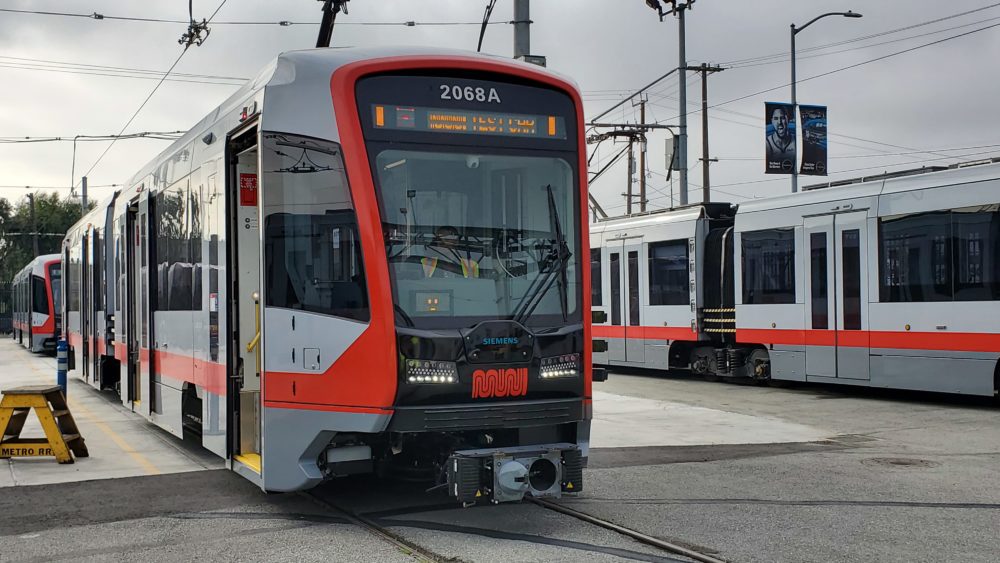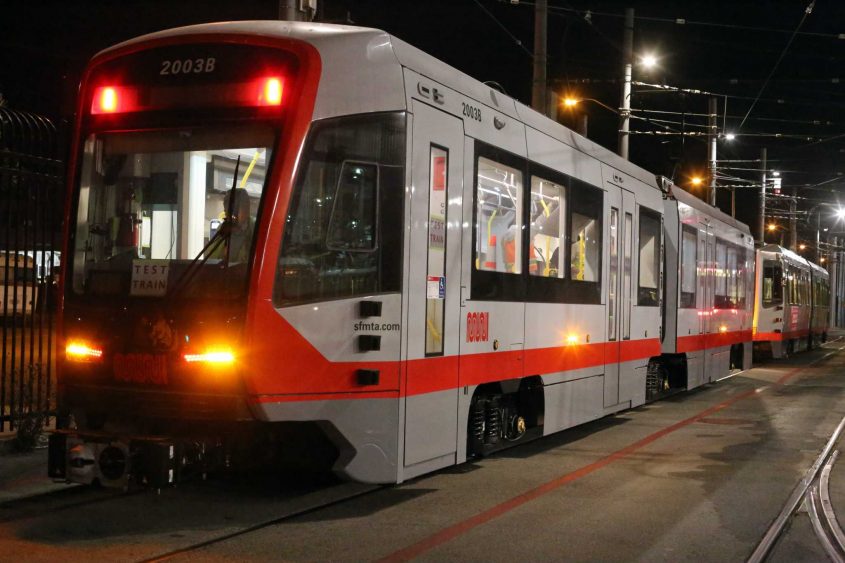San Francisco transit officials will again attempt to persuade supervisors to fund the purchase of new Muni trains.
On Tuesday, supervisors acting as the San Francisco County Transportation Authority commission will decide whether to give Muni officials $60 million to fund the second procurement phase for 151 new Muni trains, known as LRV4s.
Supervisors delayed the funding last April after San Francisco Municipal Transportation Agency officials encountered multiple mechanical issues on the new trains — passengers were caught between the train’s doors, wheels had flattened and an issue arose with the train’s coupler system.
An outside firm was hired to look into the issues involving the LRV4s.
Last month, Julie Kirschbaum, SFMTA director of transit, told supervisors they have made significant progress with manufacturer Siemens to fix the mechanical issues.

Kirschbaum said:
“We’ve had multiple fleet defects that have been addressed and I think that we will be able to move forward while also hold Siemens to a high standard of performance.”
Tweet this!
The SFMTA is still working with Siemens to resolve an issue with broken shear pins that that connect vehicles together as part of the coupler system.
Two incidents occurred last year where pins broke during train service. However, “redundancies” prevented vehicles from coming apart, Kirschbaum said. No injuries were reported as a result of either incident.
The issue did require the transit agency to run one-car LRV4s until crews replaced the shear pins. The shear pins have since been made more readily available by Siemens and are replaced every 90 days.
The shear pin problem indicates that the train’s couplers are absorbing more force than what they can handle at specific intersections — a design issue that Siemens should have initially anticipated given San Francisco’s steep grades and sharp turns, Kirschbaum said.
She said:
“There’s 10 times more force at those intersections than Siemens anticipated when they designed the coupler. Now that they know the problem, they can fix it.”
Tweet this!
The transit agency also plans to address the seating arrangement inside new trains as passengers have complained about the long, bench-style seating. The agency will move toward seating similar to what’s available on Muni’s current fleet of Breda trains.

Roger Morenco, president of the union that represents Muni operators, said at the meeting that he was glad the transit agency is listening to concerns made by operators of the new trains. Referencing his favorite movie “Beauty and the Beast,” he said:
“When the LRV4s first came onto on the platform, it was like dealing with the beast. Track break issues, flat wheels, sensitive door edges, shear pins, flat bench seats, etc. Now it’s sort of turning into a beauty.”
Tweet this!
Still, Supervisor Sandra Fewer wants reassurance from the SFMTA that the shear pin issue will be completely, adding that merely replacing pins every 90 days is not sustainable.
Fewer said:
“I think before we go into contract we want to know that this absolutely is going to be fixed and has been fixed.”
Tweet this!
Supervisor Aaron Peskin, who chairs the transportation authority commission, said he believes the SFMTA is on the right path.
Saying he intends to vote in favor of the funding, Peskin added:
“I have increasingly become convinced that they are on the right path [and] that all the numbers are moving in the right direction. This is a product that The City should acquire particularly as the old aging Breda fleet is failing and becoming outdated.”
Tweet this!
Jerold serves as a reporter and San Francisco Bureau Chief for SFBay covering transportation and occasionally City Hall and the Mayor's Office in San Francisco. His work on transportation has been recognized by the San Francisco Press Club. Born and raised in San Francisco, he graduated from San Francisco State University with a degree in journalism. Jerold previously wrote for the San Francisco Public Press, a nonprofit, noncommercial news organization. When not reporting, you can find Jerold taking Muni to check out new places to eat in the city.
